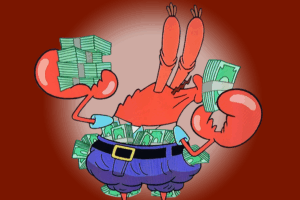The Scripts That Shape Us


Money isn’t just about numbers in a bank account – it’s deeply emotional, personal, and our relationship with it is often shaped long before we earn our first paycheck. The way we handle money often comes from deeper, subconscious beliefs referred to as Money Scripts®, a concept introduced by Dr. Brad Klontz and Dr. Ted Klontz. Money scripts influence how we manage our finances, how we feel about wealth and poverty, and even how we view our self-worth in relation to our financial situation.
While we may think our financial decisions are entirely logical, these hidden scripts can shape how we approach earning, spending, saving, and even talking about money.
There are four distinct money scripts: Money Avoidance, Money Worship, Money Status, and Money Vigilance, and each reflects different attitudes and beliefs toward money. Recognizing your own money script doesn’t define you, it’s simply a tool to help you understand your financial behaviors and biases so you can make more informed choices.
Since digging into subconscious money beliefs can feel a bit heavy, we thought we’d balance it out with a fun twist. Let’s explore how some of our favorite TV characters embody these money scripts in exaggerated ways to gain a lighter yet still insightful perspective on how these patterns might show up in real life.
1. Money Avoidance
“Having money makes you greedy.”
Individuals who exhibit Money Avoidance often have deep levels of shame, guilt, or fear surrounding money and, in some cases, they consider accumulating wealth as being greedy or evil. Typically, if someone has a high Money Avoidance score, it’s challenging for them to budget or establish cash flow policies. They might also delay getting a financial planner. This, however, doesn’t mean that all money avoidants have trouble accumulating wealth – this behavior can manifest at any income level, fueled by ingrained beliefs.
Some examples of behaviors that may show up in a person with Money Avoidance:
- Procrastinating opening mail or paying bills
- Not looking at bank account balances or statements due to fear, shame, or anxiety
- Declining financial gifts
Jake Peralta
Jake Peralta
from Brooklyn Nine-Nine
Jake Peralta is a textbook example of the Money Avoidance script. He often downplays the importance of financial responsibility or having serious conversations about money. Throughout the TV series, you hear him making jokes about being broke, yet you also see him being impulsive with his spending.
2. Money Worship
“Money is the solution to my problems.”
People with a Money Worship script often believe that more money will bring happiness, solve all their problems, or finally provide them with peace of mind. This belief can lead to a never-ending chase for wealth, often at the expense of their relationships, values, or well-being. The irony is that while these individuals believe money will make them happy, research shows they often feel less satisfied with their financial situation—even when they earn more.
They may also fall into traps of overworking, overspending, or making risky investments in hopes of that one financial windfall that will magically fix everything. This script can manifest across all income levels and may stem from early experiences of scarcity, stress, or insecurity.
Some behaviors that may show up in a person with Money Worship include:
- Overworking or prioritizing work over relationships and well-being in hopes of earning more
- Spending excessively on items that promise happiness or status
- Chasing after high-risk financial ventures, such as gambling or speculative investments
- Believing that money is the ultimate key to happiness or peace of mind, even if it comes at the cost of personal fulfillment or mental health
Mr. Krabs

Mr. Krabs
from SpongeBob SquarePants
“Money, money, money.” –Mr. Krabs
Mr. Krabs is a clear example of a very strong Money Worship script. Throughout the cartoon series, you can see him prioritizing money over everything else. No matter how hard he tries, he never feels like he has enough.
3. Money Status
“My worth is tied to how much I have or how I appear.”
The Money Status script, in contrast to Money Worship, is about appearance and external validation. Individuals with this mindset believe their value is defined by how much they have or how they are perceived by others, often prioritizing flashy, high-status items and experiences. Unlike Money Worship, where the focus is on accumulating wealth for personal happiness or security, Money Status is primarily about outward appearances and social comparisons. People with this mindset will often spend beyond their means in an attempt to look more successful or affluent than they truly are.
For those with a Money Status mindset, financial success is a way to earn approval or gain social acceptance. They may overspend on luxury goods, rent high-end apartments, or participate in expensive activities to impress others. At its extreme, this can lead to financial distress, as individuals struggle to maintain a facade of wealth. Their worth is tied not to the money itself but to how they appear in the eyes of others. At Yeske Buie, we’d call this “Living Large” rather than “Living Big.”
Some examples of behaviors that may show up in a person with Money Status are:
- Overspending on luxury items or experiences to impress others or fit in
- Hiding financial problems to maintain a certain image or lifestyle
- Making risky financial decisions (like gambling) to project a higher status
- Feeling inadequate or insecure when they don’t have the same wealth or status as their peers
Schmidt

Schmidt
from New Girl
“She has a flip phone, Jess. She’s either poor or a time traveler.” –Schmidt
Schmidt is a classic example of the Money Status script. The jokes written for his character often reflect his belief that money and status are intertwined. Throughout the series, he reinforces this by wearing designer clothes and attending extravagant parties.
4. Money Vigilance
“It is important to save for a rainy day.”
The Money Vigilance script is often considered the healthiest of the four, but like all scripts, it can show up in both productive and harmful ways. Individuals with this mindset tend to be alert, cautious, and private about their finances. They value saving above all else and may feel uncomfortable with debt or frivolous spending.
While this mindset can foster strong financial security, it can also lead to excessive anxiety, secrecy, frugality, or guilt around spending— even when it’s safe and appropriate to do so. In its most extreme form, Money Vigilance can prevent someone from enjoying the fruits of their labor.
Some examples of behaviors that may show up in a person with Money Vigilance:
- Consistently saving and budgeting
- Feeling anxious or guilty when spending money, even on essentials or self-care
- Reluctance to discuss money, even with loved ones
Dwight Schrute
Dwight Schrute
from The Office
“Why tip someone for a job I’m capable of doing myself? I can deliver food. I can drive a taxi. I can and do cut my own hair.” –Dwight Schrute
This quote is, of course, an extreme example of the Money Vigilance script. Dwight is overtly self-reliant, vigilant about being prepared for a rainy day, and avoids wasting money.
So, which money script feels most familiar to you? Maybe you identify with more than one, and that’s okay — different experiences can inform a blend of beliefs. Understanding how they show up in your life can help you make informed, deliberate financial decisions moving forward.
If you have questions about how to make your money script work for you, don’t hesitate to reach out to our team!
Still not sure? Check out the Klontz Money Scripts® Test to see where you land.


